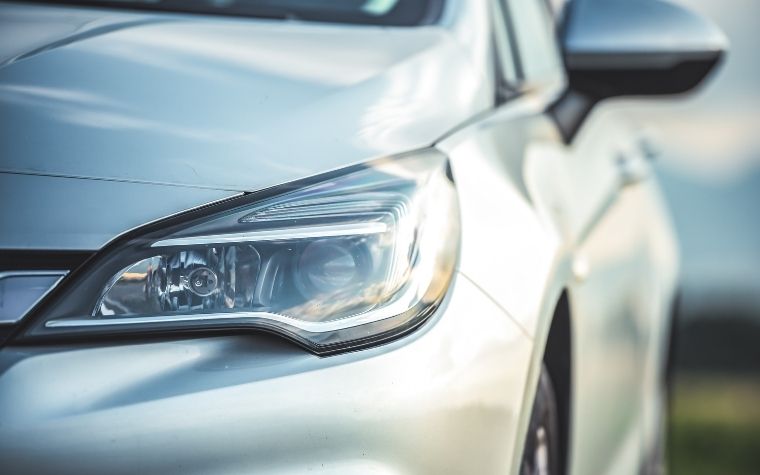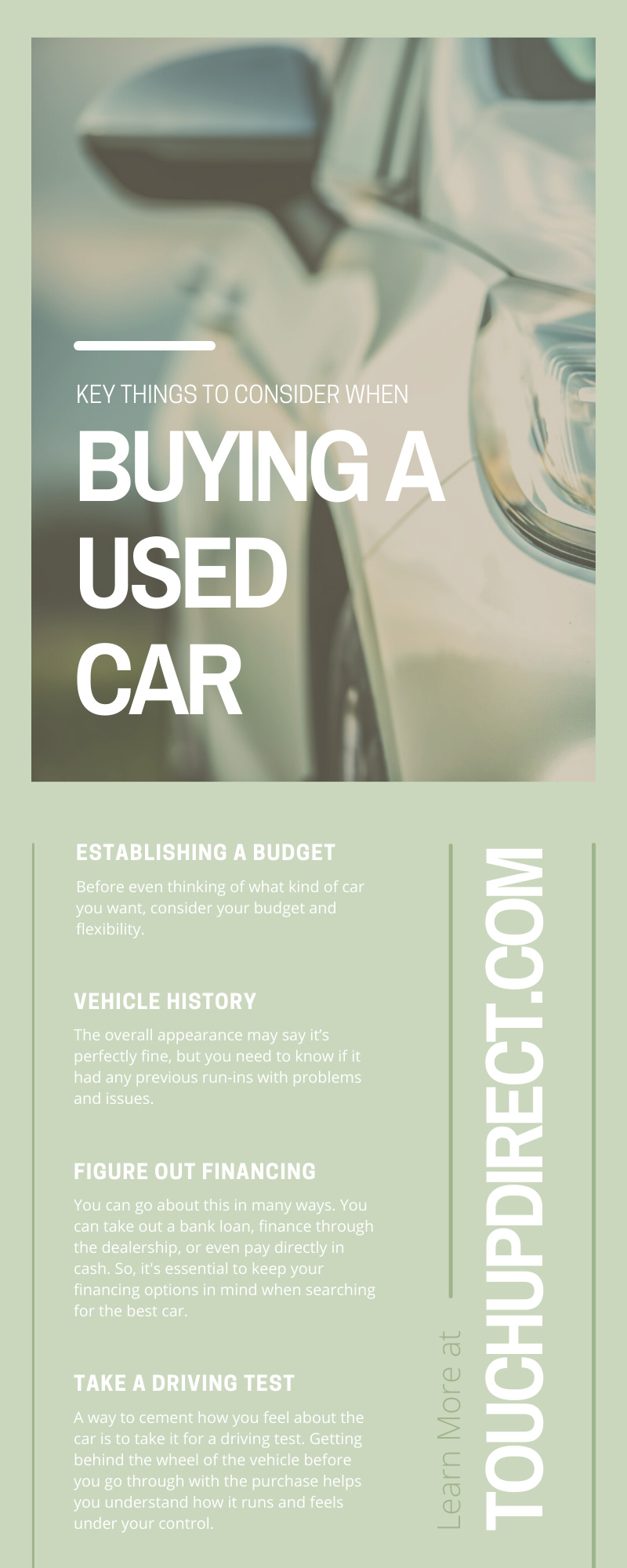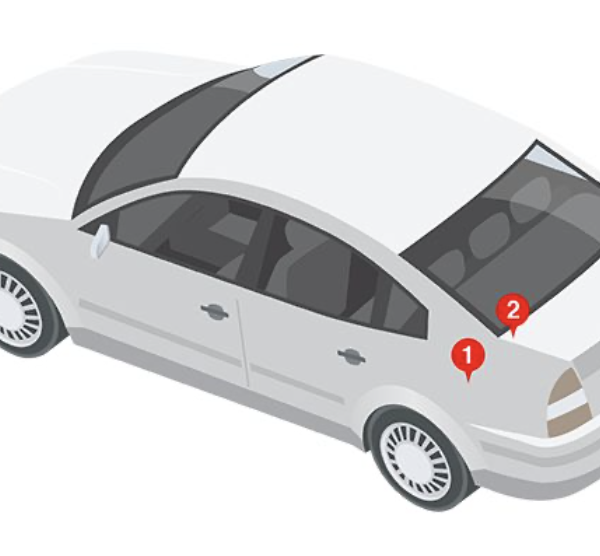Key Things To Consider When Buying a Used Car

A car is a useful thing to have in everyday life. It’s how students get to and from school. It’s how people travel to work or run their errands throughout the day. And having a vehicle is not just for basic trips and chores. With a car, you can travel or take a fun road trip. Your own vehicle will make your life easier, but how do you find the perfect car that suits your lifestyle and budget?
Luckily, you don’t have to come out of the auto dealership with a brand-new car. Why not purchase a perfectly good used car for a significantly lower price? Finding an ideal match is much easier if you know these key things to consider when buying a used car.
Establishing a Budget
Before even thinking about what kind of car you want, consider your budget and flexibility. Buyer’s remorse is more common than you’d think, even for purchasing a used car. So, having a budget established will help lessen the blow of large purchases and keep you from overspending.
One of the key things to consider when buying a used car is that dealerships and auto salespeople will try to find you the best car but may try to trick you into making a more significant purchase. If you stick to your guns and adhere strictly to your budget, you’ll find the perfect car for you. Additionally, you’ll make more rational decisions regarding your car purchase, coming out happier in the end.
Vehicle History
If you find a car and connect with it, make sure you run a background check and vehicle history on it. The overall appearance may say it’s perfectly fine, but you need to know if it had any previous run-ins with problems and issues. Thankfully, you can run a vehicle history by having the vehicle identification, also known as the VIN, and run it through vehicle history companies.
While there are visual tip-offs that a car might not have had the best background, like touch-up scratches or complete part replacement, a vehicle history report will reveal any secrets. Thankfully, you could find if the vehicle had previous accident history, if the odometer got rolled back, and whether it has a salvage title.
Remember Car Insurance
When you’re taking steps to purchase a used car, you need to make sure you have car insurance. Depending on the state, some insurance companies allow you to transfer your current coverage to the new vehicle for a short time period. It’s always required before you close the deal and drive away, so make sure that you have that handy.
Consider Your Lifestyle
As you’re searching through different cars, you need to think about the lifestyle you currently have. It would help if you considered your family life, daily routines, commutes, how many times a year you go on long-distance trips, and so on. Practicality is one of the most significant components in your car purchase.
Whether you need an SUV for family planning or a sedan for your recently licensed teenager, it must match the lifestyle it’s being brought into. Just because the sports car fits your budget doesn’t mean it can work for the way you go about your life.
Figure Out Financing
After finding a car you like, purchasing it is the next step in the process. Luckily, you can go about this in many ways. You can take out a bank loan, finance through the dealership, or even pay directly in cash. So, it’s essential to keep your financing options in mind when searching for the best car.
Additionally, you need to show proof of residency, income, identity, or a combination of the three. It usually comes down to the type of documentation your lender requires. However, the purchase can be sped up if you have the necessary documents ahead of time. So, prepare yourself wisely, and you’ll get through the buying process at a smoother rate.
Go by Reputation
Depending on the car you’re looking for, make sure that its reputation is trustworthy. If you come across a vehicle that seems like a good match but has no reviews, it probably isn’t the best choice for you. Instead, stick with car models that have the most reliable opinions and experiences for multiple drivers. Thankfully, you can find reviews and car rating websites to find trustworthy reviews.
If you find a car that has excellent reviews, don’t stop your research there. Consider looking into any minor issues it might have and think of how it could affect your lifestyle. Secondly, it’s better to go for a reputable dealership, as they need to have a satisfying experience so that you can leave with a positive review.
Take a Test Drive
A way to cement how you feel about the car is to take it for a test drive. Getting behind the wheel of the vehicle before you go through with the purchase helps you understand how it runs and feels under your control. Even if you find a flashy car that may look cool, it might not drive well.
There are many things to consider when you’re performing a driving test: if it feels natural or has resistance, whether it feels safe or not, and any blind spots you need to stay aware of. Of course, keep in mind that it needs to feel comfortable and get you where you need to be.
Negotiation and Car Title
After thinking it over, you decide to take the car. Be prepared for negotiation and getting the car title. Knowing the car’s background and surrounding information will assist you in paying a reasonable price. Additionally, purchasing a former rental vehicle will lessen the haggling you might need to do.
If the car has no loan or lien, the dealership or person you’re purchasing from should provide you with a car title. It’s vital to know that the previous owner you’re buying from is the valid owner, so check for an ID and make sure all the information matches the vehicle. Once you bring your car home, there’s a chance that you need to touch up some minor cosmetic repairs due to its previous history.
If you’re in the market for Dodge touch-up paint or another car model, visit us at TouchUpDirect. We offer touch-up kits for any car you’re looking for. So, if you need one, reach out to us today.


 Cart
Cart
 Help Desk
Help Desk





